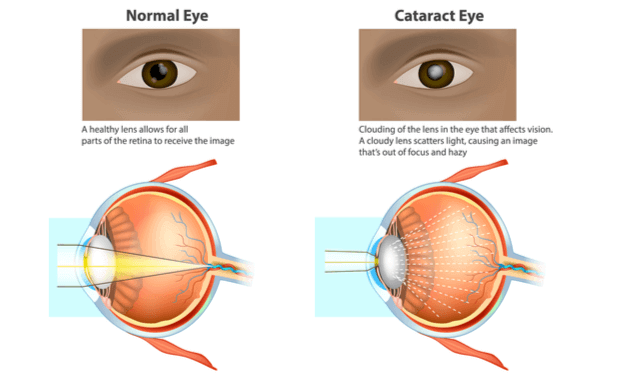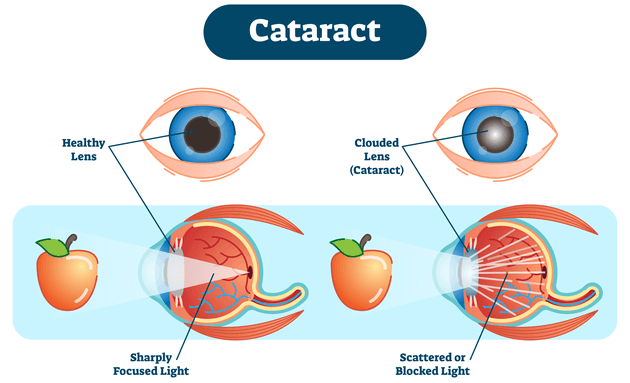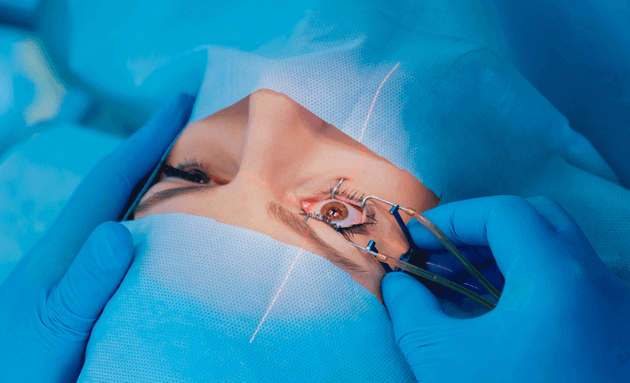
Diabetes And Cataract : What You Need To Know
More than 69 million Indians live with Diabetes. 65% of India's diabetic population additionally suffer from secondary ocular complications like cataracts.
Diabetes is a condition that occurs when your body does not produce enough or any insulin. Insulin is a hormone that converts the glucose from your food to generate energy in your body. People with diabetes tend to accumulate large amounts of blood glucose (also known as blood sugar) and can as a result suffer from multiple health issues, especially to their eyes.
What is a Cataract?
[caption id="attachment_10562" align="alignnone" width="630"] eye-cataract[/caption]
eye-cataract[/caption]
A cataract is essentially an opacity of the lens. It comes from the Greek word kataráktēs meaning the fall of water or a torrent of water. It is clouding of the lens in your eyes, inhibiting light rays from passing through and focusing on your retina to show clear images.
The lens of your eye gets glucose and oxygen from the aqueous humour (a liquid that fills the front of your eye). In a patient with diabetes who has no control over their glucose levels, sugar levels rise and result in swelling of the lens.
Furthermore, the enzyme Aldose reductase (AR) that is responsible for catalysing the conversion of glucose to sorbitol (sugars found in foods) slows down, leading to an accumulation of sorbitol which negatively affects your cells and other proteins, making the lens more opaque.
Living with a cataract can affect your day-to-day activities like reading, watching television, driving a car etc. If detected early, you can get your lens replaced by means of a surgical procedure (depending on the severity of your cataract and other related health diseases).
What Are The Symptoms of Cataracts?

Cataracts may not show symptoms at an initial stage, but challenging visual activities such as driving a car at night or bright sunlight may cause your eyes to become blurred. However, if you notice the below-listed symptoms, you should consult your ophthalmologist:
- Cloudy or misty vision
- Blurred vision
- Spots in your vision
- Seeing a circle of light around lights
- Yellowing of your vision
Does Diabetes Increase the Risk of Cataracts?
People living with Diabetes are two to five times more susceptible to developing cataracts at a much younger age than people without diabetes. These cataracts are not only likely to develop faster but can also significantly affect or impair your quality of vision.
How Can Cataracts Be Treated?
[caption id="attachment_10564" align="alignnone" width="630"] cataracts-treatment-Medanta[/caption]
cataracts-treatment-Medanta[/caption]
Cataracts are usually removed with a simple surgical procedure. Your eye doctor will make a small incision in your eye and drain the excessive fluid build up, remove your cataracts, and replace your damaged lens with a new lens. People with diabetes should get their eyes checked at regular intervals to avoid any delay in diagnosis.
Can Cataracts Be Left Untreated?
If left untreated, cataracts can lead to blindness. It is difficult to say how fast a cataract will progress, but if you experience any symptoms of cataracts, it is best to get it checked by a medical expert.
Untreated cataracts can become “hyper-mature”, which is a condition that can cause difficulty during surgery and complicate the process. It is advised to seek medical attention if you’re unsure of the state of your vision.
Diabetes and Cataracts - How To Take Care of Your Vision
[caption id="attachment_10565" align="alignnone" width="630"]
 diabetes and cataract diet[/caption]
diabetes and cataract diet[/caption]
Managing your blood sugar is the most important step to keep your vision in check if you have diabetes. Follow the diet and exercise plan recommended by your health care expert and ensure you perform routine checkups with your ophthalmologist.
Early detection and a proper diet and lifestyle will ensure your vision remains healthy in the long run.

